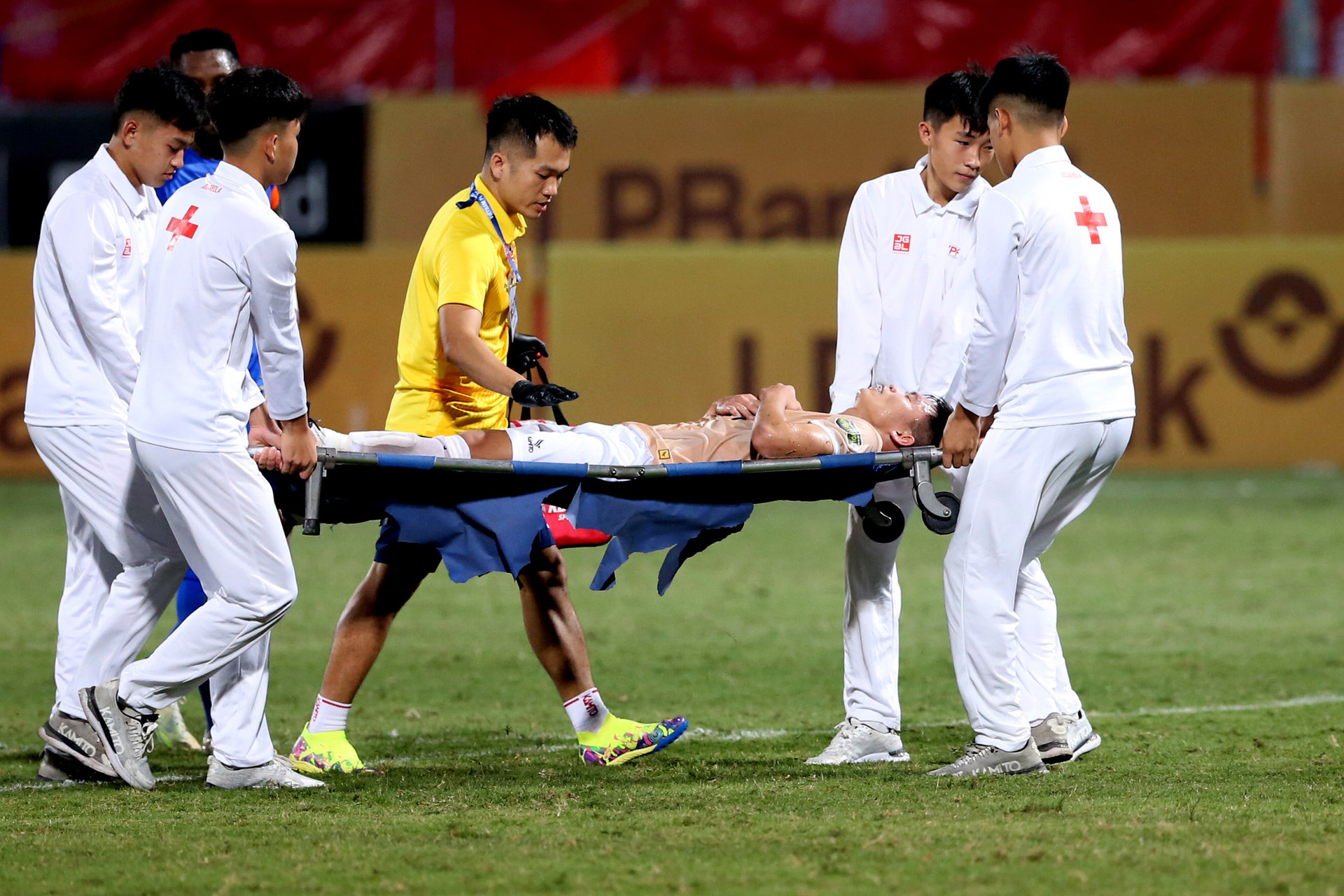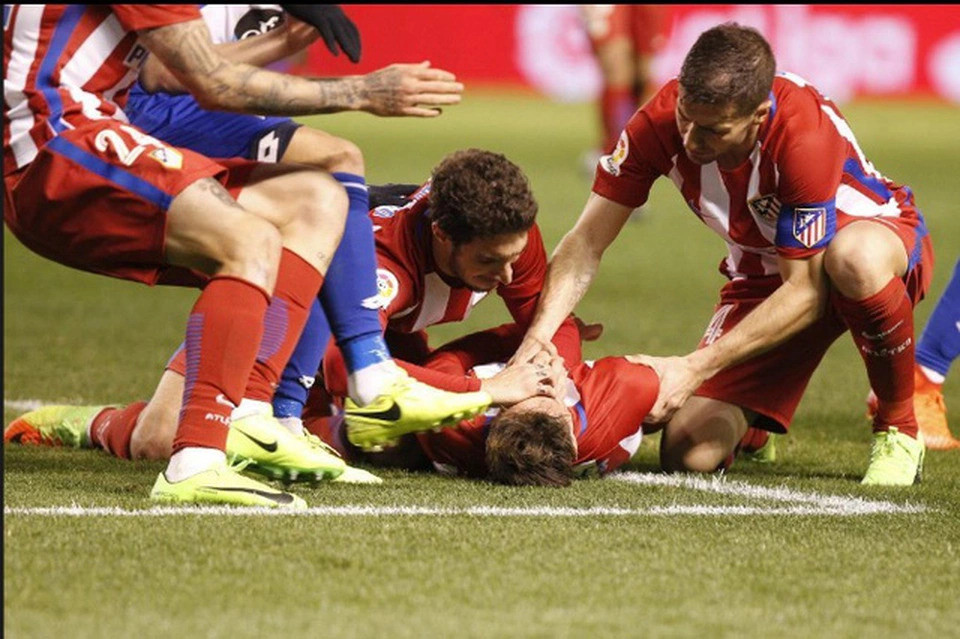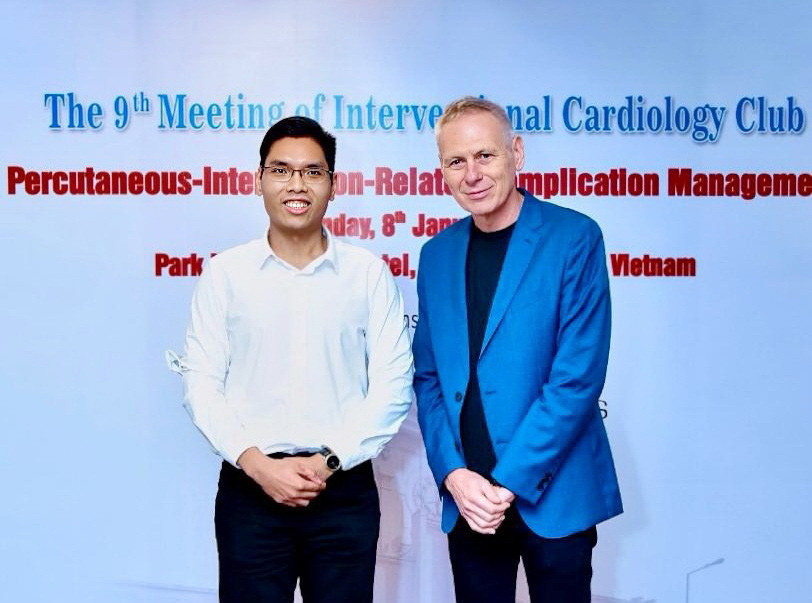The story of player Tran Ngoc Dung's sudden cardiac arrest while playing in Japan once again makes football players worry about cardiovascular health issues.

Football is a sport that is prone to stroke.
The top football village has witnessed many tragedies, as well as close calls when players suffered cardiac arrest.
Marc-Vivien Foe, Puerta, or Cheick Tiote… there is a long list of football stars who have fallen and never got up again while playing. Some are luckier - like Christian Eriksen at Euro 2020 or most recently Tom Lockyer in the Premier League, who were lucky to be saved in time.
Not only in the elite football world, the risk of sudden death is also evident in the amateur football field. Doctor Phan Tan Tai (Cardiology Department, Trung Vuong Hospital, Ho Chi Minh City) shared:
"The recent case of player Tran Ngoc Dung is actually called sudden death, not stroke. We often confuse these two concepts. In the case of stroke, the most common symptoms are hemiplegia, crooked mouth, possibly coma but the heart is still beating. Sudden death is a sudden and unpredictable cardiac arrest. In some cases, people who die suddenly can be saved if timely intervention is provided.
The main cause of sudden death is arrhythmia. For people over 35 years old, it is most likely due to coronary atherosclerosis. For people under 35 years old, it is often due to genetic diseases such as cardiomyopathy, disorders of the heart's conduction system, etc.
Sudden death in sports often occurs in combat sports, which are highly competitive. Hot weather, dehydration or overexertion are also contributing factors."

The act of pulling the tongue is often misunderstood.
The best way to prevent sudden death on the sports field is to screen for cardiovascular diseases before participating in sports, especially those with high competition. This is easy to say, but not easy to do.
Dr. Phan Tan Tai shared: "Vietnamese people often do not have the habit of cardiovascular screening. Even when going for a health check-up, very few people do an echocardiogram or electrocardiogram. The same is true for athletes as far as I know. I once met a swimmer who, when his electrocardiogram was measured, showed signs of a very high risk of sudden cardiac death. When I advised him to do further screening for cardiovascular problems, he refused, because he thought he was very healthy and had no symptoms when exerting himself.
It is advisable that if you decide to play competitive sports regularly, you should have your heart checked every year. If you have heart problems, you should find a gentler sport. This is especially important for athletes.

Doctor Phan Tan Tai (left)
Another piece of advice is to learn about first aid when encountering someone who suddenly dies. A few years ago, there was a case of a player whose tongue fell out (or was swallowed) while unconscious on the field, and then his teammates gave him first aid by pulling his tongue out.
The reason for pulling the tongue is because we are afraid that when the patient is unconscious and lying on his back, the tongue will fall down the throat, causing difficulty breathing. However, this action is very time-consuming and dangerous for the victim (accidentally pushing the tongue further out, causing injury to the mouth area, etc.). If we encounter this situation, we just need to use our hands to tilt the head back and lift the victim's chin, the tongue will return to its normal position.
The time it takes for brain cells to be permanently damaged due to lack of oxygen is 3 minutes. Therefore, the most important thing to do is to shout for help and perform CPR on the victim immediately."
TH (according to Tuoi Tre)